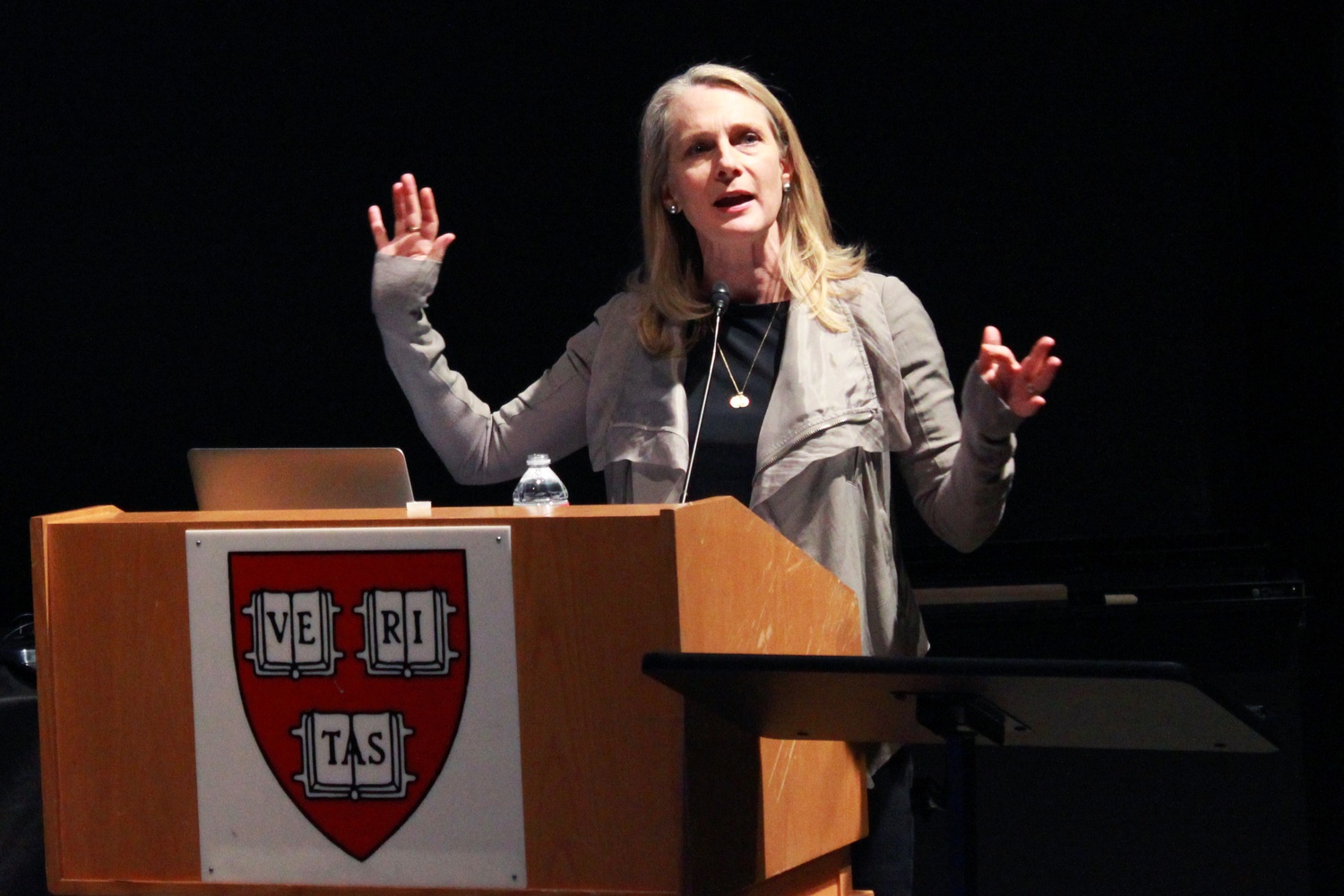
Scene and Heard: Piper Kerman
I have never seen the show. I have never read the book. And, in case anyone was wondering, I have never been to a women’s prison. So why did I choose to go hear Piper Kerman, author of the book “Orange is the New Black,” speak on the busy Monday night of March 30? To be completely honest, I just wanted to get my newly purchased copy of the book signed. Luckily, I got much more out of it than just a signed book.
The night starts with a technical glitch, as events that happen in Science Center B often do. One of the volunteers for the event, a young man wearing an appropriately colored orange shirt, tries to pass the time by making a few awkward jokes. The audience laughs politely, but the crowd is obviously eager to see Kerman as soon as possible.
Eventually, the divine intervenes, and the video in question begins playing. The audience watches as Piper Chapman, the lead character in the Netflix original series “Orange is the New Black,” speaks.
“Look, I understand that religion makes it easier to deal with all of the random shitty things that happen to us,” Chapman, who is based off the woman we are about to meet tonight, says. “And I wish I could get on that ride, I’m sure I would be happier. But I can’t. Feelings aren’t enough. I need it to be real.”
“We cheered loudly as an organization and a community when we heard that clip,” says Greg M. Epstein, Humanist Chaplain at Harvard.
By Phillip Ramirez
Epstein’s organization, the Humanist Hub, is hosting the event. The Humanist Hub is an organization where atheist, agnostic, and non-religious people can come together to “Connect, Act, [and] Evolve,” according to the group’s motto. Epstein and his colleagues had invited Kerman to Harvard in order to award her with the Humanist Heroine of the Year Award. The award reads: “Feeling aren’t enough. I need it to be real.”
“A lot of us read the book,” Epstein continues, “and we realized that it’s so humanistic in a very deep way. It’s just pro-human, and it’s good for people to take into account the message Ms. Kerman has to share.”
Soon after the clip is played, Kerman is given a chance to share that message. Epstein welcomes Kerman to the stage amidst thunderous applause. After accepting her award, Kerman takes her place at the podium, and immediately makes clear why she is receiving the award. Kerman challenges her audience to reconsider their assumptions about the people serving time in prison, their speculations about what life is like on the other side of those prison walls, and their opinions about the effectiveness of the criminal justice system.
“The themes that I think are most important in the book, that I hope come through loud and clear, are themes around race and class, which are the two biggest determinants in terms of who will be incarcerated in this country and
who will not,” Kerman states. “We know that in this country, the criminal justice system disportionately pursues and disproportionately punishes people of color and, very disproportionately, low income people.”
Although Kerman advocates for criminal justice and prison reform throughout the night, her true message is that the people in our nation’s prisons are human too.
“A prison is a place incredibly devoid of color,” Kerman says. “All the real color and vibrancy and life come from the people filling up these institutions.... And I thought it was important [to write this book], because I was just so incredibly rescued and saved and validated by the humanity of the other women I did time with.... I hoped that the reader might feel that way as they walked in my shoes, or walked in the shoes of one of the other women who is depicted in the book. ”
By the time Kerman concludes, the room felt a little bit different. Kerman’s message of humanism had truly touched the hearts and minds of all who were present. And I as I stand as the final member of the line to get my book signed, it finally hits me. I’m glad I hadn’t read the book or seen the show before coming to see Piper Kerman. I wouldn’t have seen her the way she wanted me to, the way she wanted all of us present to. Instead of seeing a character from a show or the narrator of a book, I saw a human being.


